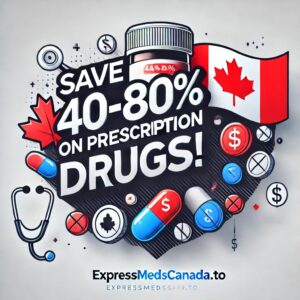Understanding Heart Disease: Types, Symptoms, and Risks
Heart disease encompasses a range of conditions that affect the heart and blood vessels, leading to issues such as blocked arteries, irregular heartbeats, weakened heart muscles, or valve problems. Some forms of heart disease are preventable with lifestyle changes, while others may require lifelong medical care, medications, or surgical interventions.
A. Types of Heart Disease
1. Coronary Artery Disease (CAD)
The most common form of heart disease, CAD develops when plaque (cholesterol, fat, and calcium deposits) builds up inside the coronary arteries, reducing blood flow to the heart.
🚨 Why It’s Dangerous:
- Narrowed or blocked arteries limit oxygen and nutrients from reaching the heart muscle.
- CAD increases the risk of a heart attack, where a blockage prevents blood from reaching the heart completely.
📌 Symptoms of CAD:
- Angina (chest pain or pressure), especially during physical activity.
- Shortness of breath, fatigue, and dizziness.
- Pain radiating to the jaw, arm, or back, a possible sign of a heart attack.
💡 Prevention & Management:
- Follow a heart-healthy diet (low in saturated fat and processed sugars).
- Exercise regularly to keep arteries flexible and improve circulation.
- Manage blood pressure and cholesterol levels to prevent further plaque buildup.
2. Heart Failure (Congestive Heart Failure – CHF)
Heart failure occurs when the heart muscle weakens and cannot pump blood efficiently, leading to fluid buildup in the lungs, legs, and other organs.
🚨 Why It’s Dangerous:
- A weakened heart struggles to supply enough oxygen and nutrients to the body.
- Fluid accumulation in the lungs causes severe breathing difficulties.
📌 Symptoms of Heart Failure:
- Shortness of breath (dyspnea), especially during exertion or while lying down.
- Swelling (edema) in the legs, feet, or abdomen due to fluid retention.
- Chronic fatigue and weakness.
💡 Prevention & Management:
- Reduce salt intake to prevent excess fluid retention.
- Maintain a healthy weight and manage underlying conditions like diabetes.
- Use prescribed medications (diuretics, beta-blockers) to support heart function.
3. Arrhythmias (Irregular Heartbeat)
Arrhythmias occur when the heart beats too fast (tachycardia), too slow (bradycardia), or irregularly due to electrical signal disturbances in the heart.
🚨 Why It’s Dangerous:
- Arrhythmias can cause dizziness, fainting, or even sudden cardiac arrest.
- Some arrhythmias, such as atrial fibrillation (AFib), increase the risk of stroke.
📌 Symptoms of Arrhythmias:
- Palpitations (a racing, fluttering, or pounding heart).
- Dizziness or fainting due to poor blood circulation.
- Chest discomfort or fatigue, especially if the heartbeat is abnormally slow.
💡 Prevention & Management:
- Reduce caffeine and alcohol intake, as they can trigger irregular rhythms.
- Manage stress and practice deep breathing or meditation.
- Medications like beta-blockers or blood thinners may be needed for high-risk cases.
4. Valvular Heart Disease
Heart valves regulate blood flow by ensuring it moves in the right direction. When these valves are damaged or malfunctioning, blood may leak backward or become blocked, leading to inefficient circulation.
🚨 Why It’s Dangerous:
- A faulty valve can strain the heart and lead to heart failure if untreated.
- Certain infections (like rheumatic fever) or genetic factors can contribute to valve damage.
📌 Symptoms of Valvular Heart Disease:
- Heart murmurs (abnormal heart sounds heard with a stethoscope).
- Shortness of breath and chest pain during physical exertion.
- Swelling in the legs and feet due to blood pooling.
💡 Prevention & Management:
- Routine heart check-ups can detect valve issues early.
- In some cases, surgical valve repair or replacement is necessary.
5. Congenital Heart Disease (CHD)
Congenital heart disease refers to heart defects present at birth, affecting how blood flows through the heart. Some conditions correct themselves over time, while others require surgery or lifelong care.
🚨 Why It’s Dangerous:
- Some defects restrict oxygen-rich blood from circulating properly, leading to developmental and respiratory issues.
- Can increase the risk of heart failure or arrhythmias later in life.
📌 Symptoms of CHD:
- Bluish tint to the skin (cyanosis) due to poor oxygen circulation.
- Shortness of breath, fainting, or delayed growth in infants.
- Irregular heart rhythms or fatigue in older children/adults.
💡 Prevention & Management:
- Regular echocardiograms and heart monitoring for early detection.
- Some mild cases resolve naturally, while severe defects require surgical correction.
B. Common Symptoms of Heart Disease
Heart disease symptoms vary depending on the type, but the most common warning signs include:
1. Chest Pain or Discomfort (Angina)
- A tight, squeezing, or burning sensation in the chest.
- May radiate to the jaw, neck, arms, or back.
- Often triggered by physical exertion or stress.
2. Shortness of Breath
- Difficulty breathing, especially during exercise or while lying down.
- Often accompanied by wheezing or persistent coughing (fluid in the lungs).
3. Fatigue and Weakness
- Feeling excessively tired, even with minimal activity.
- Can signal that the heart isn’t pumping efficiently.
4. Swelling in the Legs, Ankles, or Feet (Edema)
- Fluid buildup due to the heart struggling to pump blood properly.
- May worsen throughout the day or after prolonged sitting/standing.
5. Irregular Heartbeat (Palpitations)
- A fluttering, racing, or pounding sensation in the chest.
- Can indicate arrhythmias or an underlying heart issue.
6. Dizziness or Fainting
- Sudden dizziness or loss of consciousness can signal low blood pressure, arrhythmia, or poor circulation.
🚨 When to Seek Immediate Medical Attention
Certain symptoms require urgent medical evaluation, as they could indicate a heart attack, stroke, or life-threatening heart failure.
Call 911 or seek emergency care if you experience:
❗ Severe chest pain that spreads to the arms, jaw, or back.
❗ Sudden shortness of breath or difficulty breathing.
❗ Fainting, dizziness, or sudden confusion.
❗ Rapid or irregular heartbeat accompanied by weakness or chest pain.
⏳ Time matters! The sooner a heart condition is treated, the better the chance of recovery.
Final Thoughts: Protecting Your Heart
Understanding heart disease types, symptoms, and risk factors is crucial for early prevention and effective management.
🔹 Regular heart check-ups, a healthy diet, and staying active can significantly reduce your risk.
🔹 If you notice persistent chest pain, shortness of breath, or palpitations, don’t ignore the signs—get checked by a doctor.
🔹 Taking proactive steps today ensures a stronger, healthier heart for years to come. ❤️
Save 40-80% on Your Prescription Medications with ExpressMedsCanada.to!
 Why pay more for your prescriptions when you can save up to 80% by filling them through our trusted international pharmacies? At ExpressMedsCanada.to, we’ve been a leader in the prescription medication industry for over 23 years, committed to providing affordable healthcare solutions to clients worldwide.
Why pay more for your prescriptions when you can save up to 80% by filling them through our trusted international pharmacies? At ExpressMedsCanada.to, we’ve been a leader in the prescription medication industry for over 23 years, committed to providing affordable healthcare solutions to clients worldwide.
Millions of people have been overpaying for their medications, but ExpressMedsCanada.to is here to change that. We coordinate a global network of licensed pharmacies to ensure your prescriptions are filled safely, securely, and at a fraction of the cost.
Join the thousands of satisfied customers who trust ExpressMedsCanada to save on their prescription medications. Start your order today and take the first step toward affordable healthcare! Visit us now at ExpressMedsCanada.to and discover the savings waiting for you.


